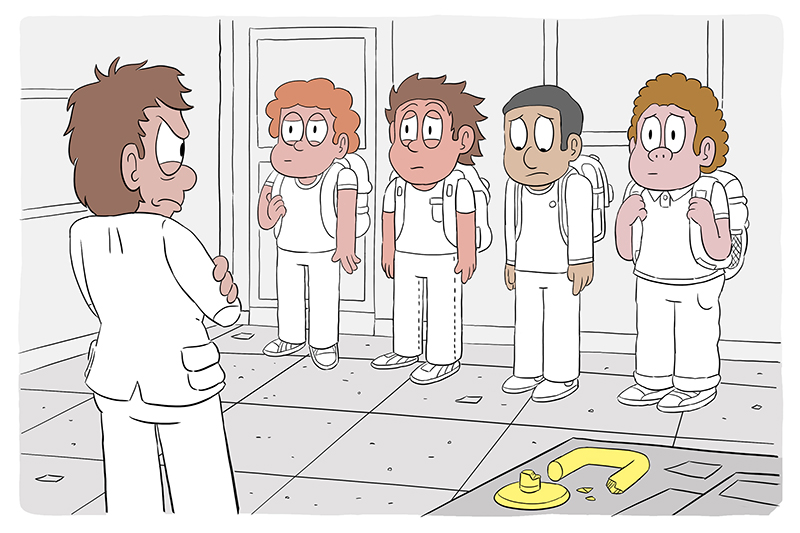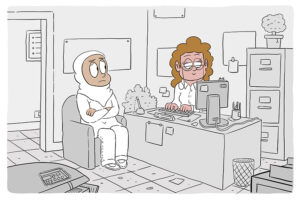
Nabil, Casper and two other boys are playing by the bike shed in the schoolyard. Casper is playing with the door handle and suddenly it breaks off. Casper is startled, drops it and the four boys run away. A teacher finds the broken door handle and asks the boys what happened. Nabil is startled by the teacher and does not look at him. “Oy, how stern the master looks. I hope the anger is over soon. So why is Casper acting so stupid, too?”
The teacher looks at the four boys. Which of those boys would have done it? Nabil doesn’t look at the teacher. “Just look. Casper and those other boys look at me and seem innocent. But Nabil doesn’t even dare to look at me; he must have done it. That boy doesn’t seem very trustworthy. “
What’s going on?
In the Netherlands, people are used to the idea that a child has to look at an elder if they want to say something serious. The idea is that you only really have “contact” when you look at each other, then you “see the truth” in the eyes of the other. Nabil thinks it is disrespectful to look at the teacher, especially when he is angry. He has learned that you have to look down then. But the teacher gets the impression that Nabil has something to hide, and unconsciously he blames Nabil for breaking the door handle.
Where is the connection?
How complicated for Nabil. He is not used to looking at the teacher and now the teacher thinks he might have done it… Nabil comes from a hierarchical culture. You don’t look directly at the boss then, especially when something is going on. That’s disrespectful! On the contrary, it is seen as arrogant or insulting if you look straight at the teacher.
The Netherlands is an egalitarian country. We communicate directly, transparently and more or less openly between student and teacher, and between employee and boss. Looking at each other is a sign of this openness – if someone doesn’t, people think you have something to hide. Nabil might try that next time.
For the teacher, it is wise to understand that Nabil has always been taught to show his respect by looking at the ground and that he should not jump to conclusions but rather ask further questions.
In short
For the teacher:
- Accept that Nabil comes from a hierarchical society and that the teacher has status and deserves respect.
- Nabil will not easily look the teacher in the eye. Watch for other signs in his communication.
- Create an opportunity with Nabil and his parents to talk about his role as a teacher.
- Question by.
For Nabil:
- Accept that Dutch teachers can be looked at directly.
- That has nothing to do with disrespect.
- Stand up for yourself if you notice the teacher drawing the wrong conclusion.
Want to read more about culture dimensions?
Important to know:
This anecdote is based on stories shared with us. Connect2Us strives to highlight the dilemma from both sides and not to label people or suggest that one or the other should behave differently. We see in our daily intercultural work that awareness by those involved is enough to move toward each other without pretending to be very different. Connect2Us aims to help readers recognize and avoid prejudice. Read about prejudice, discrimination and racism here.

